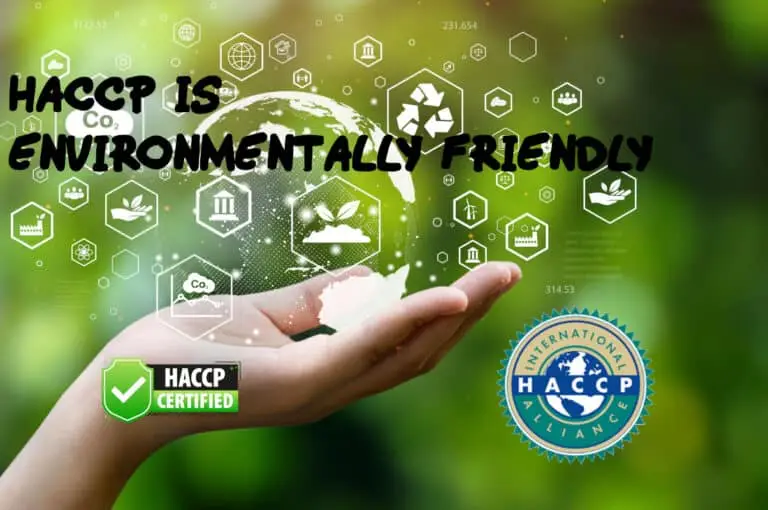HACCP (Hazard Analysis and Critical Control Points) is a food safety management system that is designed to identify and control potential hazards in food production processes. While HACCP may not directly address climate change, it can play a role in reducing the environmental impact of food production, which is a major contributor to climate change.
One way that HACCP can help reduce the environmental impact of food production is by identifying and minimizing waste. By analyzing each step in the production process, HACCP can help identify areas where waste is being generated and develop strategies to reduce or eliminate it. This can help reduce the number of resources needed to produce food, which in turn can help reduce greenhouse gas emissions and other environmental impacts.
Another way that HACCP can help with climate change is by promoting sustainable agriculture practices. HACCP can help identify potential hazards associated with certain farming practices, such as the use of pesticides or fertilizers, and develop strategies to minimize their impact. By promoting sustainable practices, HACCP can help reduce the amount of greenhouse gas emissions associated with food production.
In addition, HACCP can help reduce energy consumption in food production processes. By analyzing the energy inputs at each step of the process, HACCP can help identify opportunities for energy conservation and optimization. This can include reducing energy usage in food processing, transportation, and storage, which can help reduce the carbon footprint of food production.
Furthermore, HACCP can help promote the use of renewable energy sources in food production. By identifying areas where renewable energy sources, such as solar or wind power, can be integrated into food production processes, HACCP can help reduce reliance on non-renewable energy sources and help reduce greenhouse gas emissions.
Overall, while HACCP may not directly address climate change, it can play a significant role in reducing the environmental impact of food production. By promoting sustainable agriculture practices, reducing waste and energy consumption, and promoting the use of renewable energy sources, HACCP can help reduce greenhouse gas emissions and other environmental impacts associated with food production.

